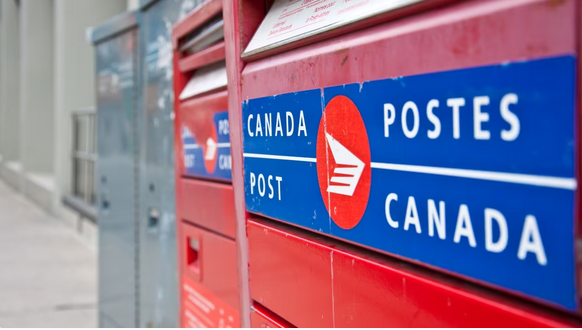Air Canada pilots might vote down pay raise of nearly 40% on Thursday. Here’s why
Could the richest contract settlement in Air Canada history get voted down by pilots?
While it’s a long-shot, there’s still a possibility, according to labour relations and air industry experts.
In ordinary times, said McMaster University labour studies professor Stephanie Ross, the tentative agreement between the Air Line Pilots Association and Canada’s biggest airline would be a dead-lock certainty to pass in the membership voting, which wraps up Thursday morning.
“Normally, it would be almost unthinkable to imagine this being turned down,” said Ross. “It’s not unthinkable now.”
The four-year deal, agreed to in September, would see pilots get raises of almost 40 per cent. It includes a 26 per cent raise in the first year, followed by increases of four per cent in each of the following years. The initial 26 per cent increase is also retroactive to last year.
But the deal still includes a dramatic pay gap between junior pilots and their more experienced peers, with first year pilots earning as little as $75,700, while experienced pilots on wide-body planes like a Boeing 777 can earn as much as $367,000.
While there’s a significant bump for fifth-year pilots to over $180,000, the lower wages for the first four years could prove to be a sticking point for junior members, said John Gradek, a former Air Canada executive and head of McGill University’s Global Aviation Leadership Program.
Of the 5,300 or so Air Canada pilots eligible to vote on the deal, almost 40 per cent have been hired recently, Gradek estimated.
“There are probably about 2,000 pilots who are still going to be on the lower-wage scale,” Gradek said, adding that junior pilots can be shifted around much more than their senior colleagues.
“You could still be first officer on a 777 and be getting paid $75,000,” said Gradek. “They can slot you into whatever kind of plane they want, on whichever route they want, as long as you’re trained on that plane.”
That kind of gap could tempt many of the newer pilots to vote against ratifying the deal, said Rafael Gomez, director of the Centre for Industrial Relations and Human Resources at the University of Toronto.
“I think the younger members are going to vote en masse against the deal,” said Gomez. “One of the things that unions are supposed to do is reduce inequality within the membership, and I don’t think this deal has done that.”
Even Charlene Hudy, head of the of ALPA’s Air Canada bargaining unit, has admitted the possibility of the deal going down to defeat. In a townhall meeting with union members last month to explain the deal, Hudy said she’d resign if the deal isn’t ratified, according to The Canadian Press.
“If the membership votes no to this, it would clearly indicate to the public, media, government and company that I no longer speak on your behalf,” she said, in comments that were verified to The Canadian Press by two pilots. “If I stayed, it would be to your detriment.”
Air Canada declined to comment.
In response to a request for comment for this story, Hudy took a more positive tack, but still acknowledged the possibility of the deal getting voted down.
“The ratification vote is open until Thursday…where the pilot group has the opportunity to approve this agreement or not,” Hudy said. “This is the largest labour deal in Air Canada history and sets a solid foundation for Air Canada pilots for continuing to improve our wages and working conditions.”
There’s another pay gap that still exists — the one between Canadian airline pilots and their higher-earning American peers, pointed out McGill’s Gradek. That gap, at least, has been narrowed substantially in the new agreement, he said.
“It’s brought it back to where the gap has been historically, 10 to 15 per cent. By the end of the old deal, it was anywhere from 40 to 50 per cent lower,” said Gradek.
The narrowing of that gap, said Gradek, is probably enough for the tentative agreement to pass.
“The people who are pissed off are always more motivated to vote, but I’d still be shocked if it gets voted down.”
This article was first reported by The Star













